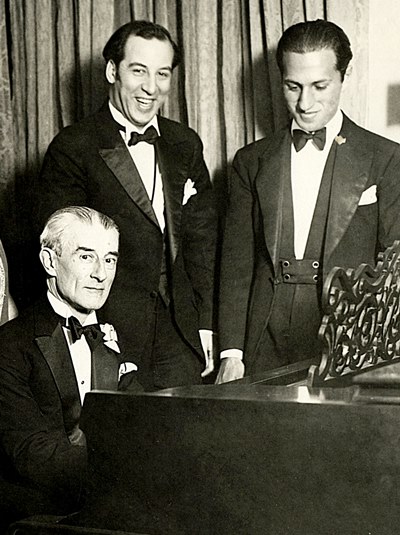Double debut doubles pleasure as Nézet-Séguin and Rotterdam Philharmonic take Chicago bows
 Review: Rotterdam Philharmonic Orchestra conducted by Yannick Nézet-Séguin in works by Ravel and Prokofiev, at Orchestra Hall.
Review: Rotterdam Philharmonic Orchestra conducted by Yannick Nézet-Séguin in works by Ravel and Prokofiev, at Orchestra Hall.
By Lawrence B. Johnson
It was one of those double-take realizations, the improbable fact that conductor Yannick Nézet-Séguin, the high-profile 39-year-old music director of the Philadelphia Orchestra, had never conducted in Chicago – not with the Chicago Symphony, not at all.
That – what shall we call it, oversight? – was corrected in stunning fashion when Nézet-Séguin brought his other ensemble, the Rotterdam Philharmonic Orchestra, to Orchestra Hall on Feb. 20 with a program of Ravel and Prokofiev that confirmed every good report about the conductor and proved little short of revelatory about the Dutch troupe.
 In one telling stroke, with Ravel’s elegant and deceptively exacting “Mother Goose” Suite, Nézet-Séguin showed his mettle as a maestro of the first rank. The technical finesse and expressive sensibility the Montreal-born maestro displayed in these gossamer evocations of Beauty and the Beast, Tom Thumb and Sleeping Beauty brought to mind the proposition that a conductor who can do Mozart well can do anything. But Mozart also edged this listener’s thoughts in more than that.
In one telling stroke, with Ravel’s elegant and deceptively exacting “Mother Goose” Suite, Nézet-Séguin showed his mettle as a maestro of the first rank. The technical finesse and expressive sensibility the Montreal-born maestro displayed in these gossamer evocations of Beauty and the Beast, Tom Thumb and Sleeping Beauty brought to mind the proposition that a conductor who can do Mozart well can do anything. But Mozart also edged this listener’s thoughts in more than that.
In Nézet-Séguin’s animated presence, in the sheer joy of music-making he conveyed, but also in the strict command he asserted, I saw the kind of public musician Mozart must have been. Everything seemed so spontaneous and effortless, though the musical result bespoke deep reflection and understanding. That easy assurance likewise resounded in the Rotterdam Philharmonic’s sparkling turn through the “Mother Goose” Suite, and no less so in a second portion of Ravel that followed – the Piano Concerto in G with soloist Hélène Grimaud.
Something of a three-panel tableau in shifting styles, Ravel’s brilliant concerto begins in the jazzy world of Gershwin (whom Ravel had met on a visit to America), only to digress into a ruminative movement not far removed from Mozart and end up in a blistering finale of high Gallic wit. While Grimaud tossed off the vibrant outer movements with glittering virtuosity, the heart of her performance was a deliberately paced Adagio shaped in singing phrases and radiant sound.
 And the Rotterdam virtuosi were right with her all the way, from the crackling, bluesy start to the unbuttoned, all-out finish. Burnished string playing was matched by eloquent woodwinds and a brass department with all the bravura potency required by Ravel’s fiery concerto.
And the Rotterdam virtuosi were right with her all the way, from the crackling, bluesy start to the unbuttoned, all-out finish. Burnished string playing was matched by eloquent woodwinds and a brass department with all the bravura potency required by Ravel’s fiery concerto.
That said, even more striking than the orchestra’s ability to create a blaze of sound was its evident conditioning to rein it in, to make a compelling musical point by subtle means. It was a disposition on display constantly in a thrilling performance of Prokofiev’s Fifth Symphony.
At this performance, Nézet-Séguin eschewed a baton, preferring instead to work rather like an aural sculptor, forming musical images with swiftly moving hands. And here in full view was a marvelous disconnect between the conductor’s exuberant physicality and the impeccable finesse that his lurching form elicited from his musicians.
 The Prokofiev Fifth attested to how thoroughly the Rotterdam musicians have assimilated their maestro’s methods. Without sacrificing the work’s inherent power and grandeur, the Rotterdam performance accentuated detail – lovely interplay among the woodwinds, delicate string effects, a general sense of air amid the tumult of notes – to a degree that I cannot recall in a lifetime of listening to the piece.
The Prokofiev Fifth attested to how thoroughly the Rotterdam musicians have assimilated their maestro’s methods. Without sacrificing the work’s inherent power and grandeur, the Rotterdam performance accentuated detail – lovely interplay among the woodwinds, delicate string effects, a general sense of air amid the tumult of notes – to a degree that I cannot recall in a lifetime of listening to the piece.
Something else I can’t remember: an important musician quieting the final applause to point out his debut, as Nézet-Séguin did here. The conductor sounded genuinely happy at last to have conducted at Orchestra Hall. And he noted that his orchestra also was making its Chicago debut.
Whereupon, at the urging of a whooping audience that showed no inclination to leave, Nézet-Séguin and company served up a razzle-dazzle encore, Shostakovich’s vibrantly hued Folk Festival from his “Gadfly” Suite. Listeners no doubt would have stayed for more, but Nézet-Séguin made a sleeping gesture – no doubt on behalf of his whole well-traveled gang – and waved goodbye.
One can’t help observing that the Chicago Symphony’s music director, Riccardo Muti, was about Nézet-Séguin’s age when he became music director of the Philadelphia Orchestra in 1980. Nézet-Séguin also has a world of promise in front of him. As that future unfolds, Chicago surely will be seeing a good deal more of him.
Related Link:
- The luminous career of Yannick Nézet-Séguin: Visit his website
Tags: Hélène Grimaud, Rotterdam Philharmonic Orchestra, Yannick Nézet-Séguin

